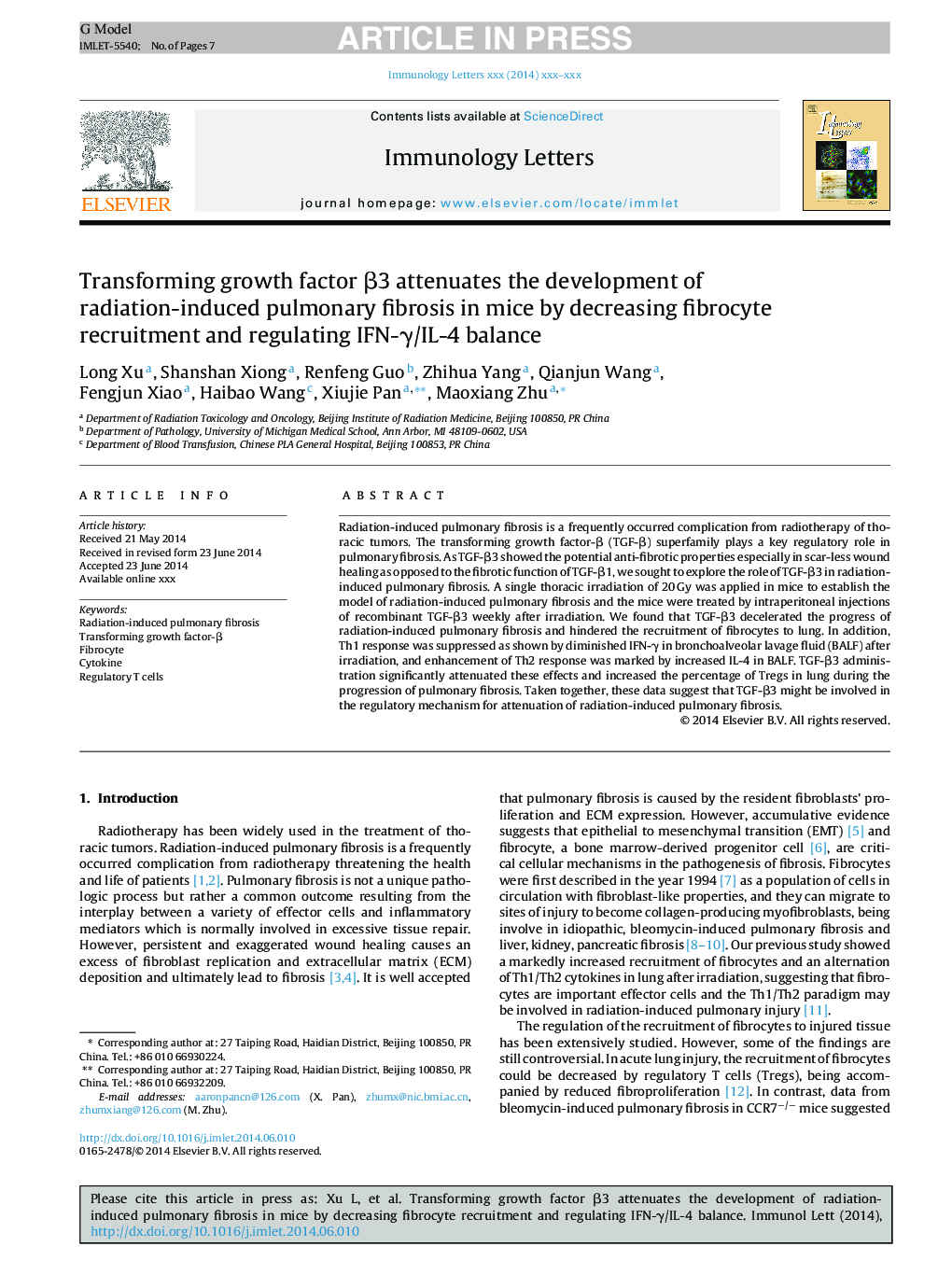| Article ID | Journal | Published Year | Pages | File Type |
|---|---|---|---|---|
| 6117178 | Immunology Letters | 2014 | 7 Pages |
Abstract
Radiation-induced pulmonary fibrosis is a frequently occurred complication from radiotherapy of thoracic tumors. The transforming growth factor-β (TGF-β) superfamily plays a key regulatory role in pulmonary fibrosis. As TGF-β3 showed the potential anti-fibrotic properties especially in scar-less wound healing as opposed to the fibrotic function of TGF-β1, we sought to explore the role of TGF-β3 in radiation-induced pulmonary fibrosis. A single thoracic irradiation of 20 Gy was applied in mice to establish the model of radiation-induced pulmonary fibrosis and the mice were treated by intraperitoneal injections of recombinant TGF-β3 weekly after irradiation. We found that TGF-β3 decelerated the progress of radiation-induced pulmonary fibrosis and hindered the recruitment of fibrocytes to lung. In addition, Th1 response was suppressed as shown by diminished IFN-γ in bronchoalveolar lavage fluid (BALF) after irradiation, and enhancement of Th2 response was marked by increased IL-4 in BALF. TGF-β3 administration significantly attenuated these effects and increased the percentage of Tregs in lung during the progression of pulmonary fibrosis. Taken together, these data suggest that TGF-β3 might be involved in the regulatory mechanism for attenuation of radiation-induced pulmonary fibrosis.
Related Topics
Life Sciences
Immunology and Microbiology
Immunology
Authors
Long Xu, Shanshan Xiong, Renfeng Guo, Zhihua Yang, Qianjun Wang, Fengjun Xiao, Haibao Wang, Xiujie Pan, Maoxiang Zhu,
